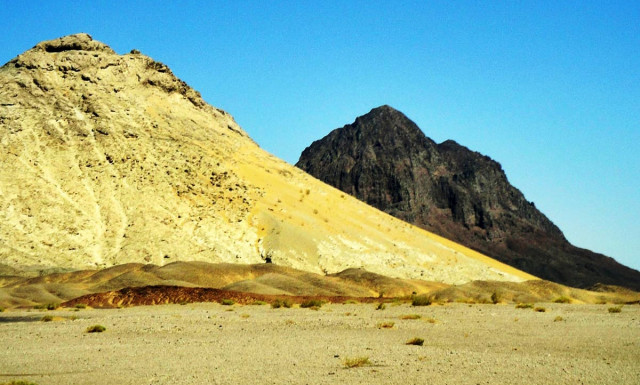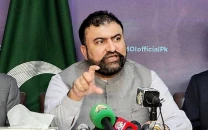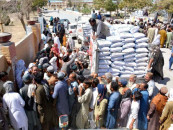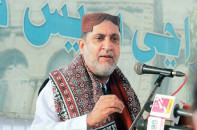Balochistan seeks public listing for Saindak, Reko Diq
Announces Rs180 billion budget; spending increases in education, law enforcement.

The Balochistan government plans to list its stake in the multi-billion dollar Saindak and Reko Diq copper and gold mines on a stock exchange.
Balochistan Finance Minister Mir Asim Kurd Gailu made the announcement in the provincial assembly in Quetta on Monday during his speech laying out the provincial budget for fiscal year 2013. The announcement is likely to create significant interest among potential investors if Balochistan is looking to reduce or even exit its stake in the mines.
The provincial government also announced that it would be allocating Rs8.5 billion ($90 million) towards its 25% share in the Reko Diq mine copper mine. Balochistan will set up an investment board that will aim to manage the listing of the Quetta’s stake in the mines. Gailu indicated that the government wanted to capitalise on its investment, even though it has been locked in a lengthy court battle with its two foreign partners in the Reko Diq mine: Chile’s Antofagasta and Canada’s Barrick Gold.
The Rs180 billion budget is the fifth in a row delivered by the Pakistan Peoples Party-led coalition in Balochistan. Despite being an election year, the government managed to resist the urge to undertake any drastic populist measures. Quetta expects to balance its budget for the fiscal year ending June 30, 2013.
The overwhelming bulk of Balochistan’s revenues come in the form of transfers from the federal government in one form or another. The province has seen its budget nearly double in size since the passage of the 18th Amendment to the Constitution and the 7th National Finance Commission Award in 2010.
The single biggest segment of the Balochistan budget is education, where the provincial government will spend about Rs24.5 billion in 2013, including Rs2 billion from the development budget. This amount comes to about 13.6% of the total budget. Among the development priorities for the government in the coming year will be to build 150 new schools.
Quetta is allocating 5.5% of its total budget – or about Rs9.9 billion – to healthcare. This amount is an 11% increase over the previous year’s allocation, on par with inflation during the previous year. Another Rs 13.5 billion, or 7.5% of the total budget, will be spent on law and order, an increase of 17.3% over the previous year. The Balochistan police do not patrol most of the province’s territory, which falls under several federally- controlled militias.
About 20% of the Balochistan budget – Rs35.8 billion – will be spent on development programmes. This amount is about 14% higher than the allocation for the outgoing fiscal year.
Among the more unique projects being funded by the government is a Rs888 million solar home electricity system, which is aimed at energy conservation in a province where 20-hour power outages are the norm. Another Rs800 million will be spent completing the Pasni Fish Harbour in a project funded by the government of Japan. The province will spend Rs12 billion building roads.
Perhaps interestingly for the poorest province in the federation, Quetta decided to raise the minimum wage in the province from Rs7,000 per month to Rs9,000 – the highest in the country.
The provincial government did announce at least a few populist policies, such as the plan to recruit up to 15,000 young people into the Balochistan government. In addition, the government will spend Rs7 billion subsidising the electricity for agricultural tube-wells in the province.
And following the federal government’s lead, Balochistan will be awarding an ad hoc pay increase of 20% to public employees in the province.
Balochistan’s estimates its own revenue collection to clock in at a paltry Rs5.2 billion in 2013, up by only 7.3% over the outgoing year’s amount.
Published In The Express Tribune, June 12th, 2012.



















COMMENTS
Comments are moderated and generally will be posted if they are on-topic and not abusive.
For more information, please see our Comments FAQ